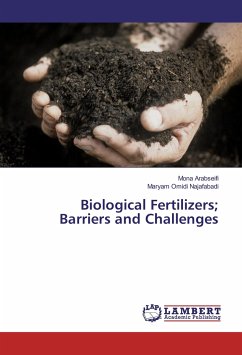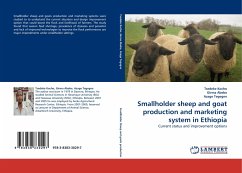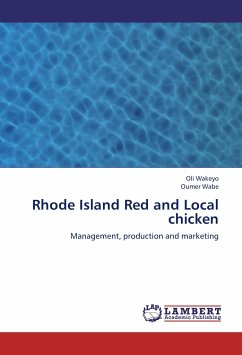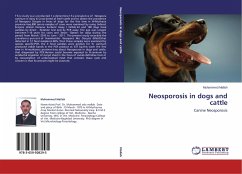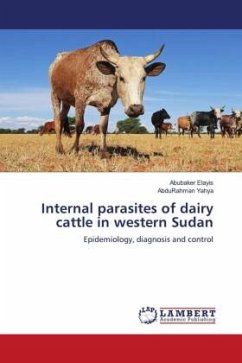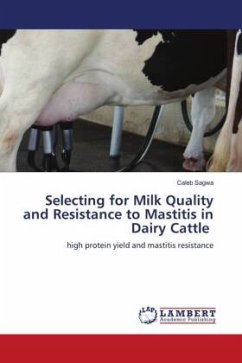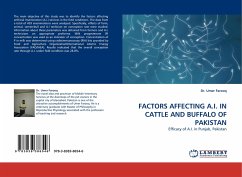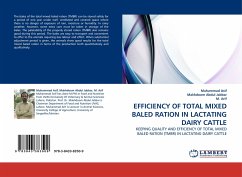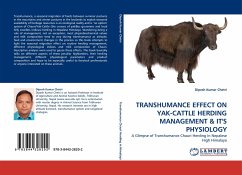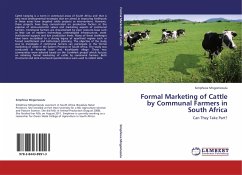
Formal Marketing of Cattle by Communal Farmers in South Africa
Can They Take Part?
Versandkostenfrei!
Versandfertig in 6-10 Tagen
32,99 €
inkl. MwSt.

PAYBACK Punkte
16 °P sammeln!
Cattle keeping is a norm in communal areas of South Africa and that is why most developmental strategies that are aimed at improving livelihoods in these areas have targeted cattle projects as interventions. However, these projects have long concentrated on production factors at the expense of socio-economic values andmarketing aspects of communal farmers. Communal farmers are characterised by poor resource base such as little use of modern technology, undeveloped infrastructure, weak institutional support and low production levels. Many of these challenges have been accredited to a strong leg...
Cattle keeping is a norm in communal areas of South Africa and that is why most developmental strategies that are aimed at improving livelihoods in these areas have targeted cattle projects as interventions. However, these projects have long concentrated on production factors at the expense of socio-economic values andmarketing aspects of communal farmers. Communal farmers are characterised by poor resource base such as little use of modern technology, undeveloped infrastructure, weak institutional support and low production levels. Many of these challenges have been accredited to a strong legacy of apartheid regime such as forced resettlement and betterment planning.The objective of the study was to investigate if communal farmers can participate in the formal marketing of cattle in the Eastern Province of South Africa. The study was conducted in Amatole basin and KwaMasele village. These two communities were selected based on the ComMark project which focuses on initiating formal marketing of cattle by communal farmers. Both structured and semi-structured questionnaires were used to collect data.



